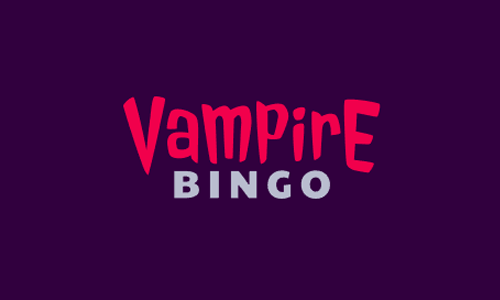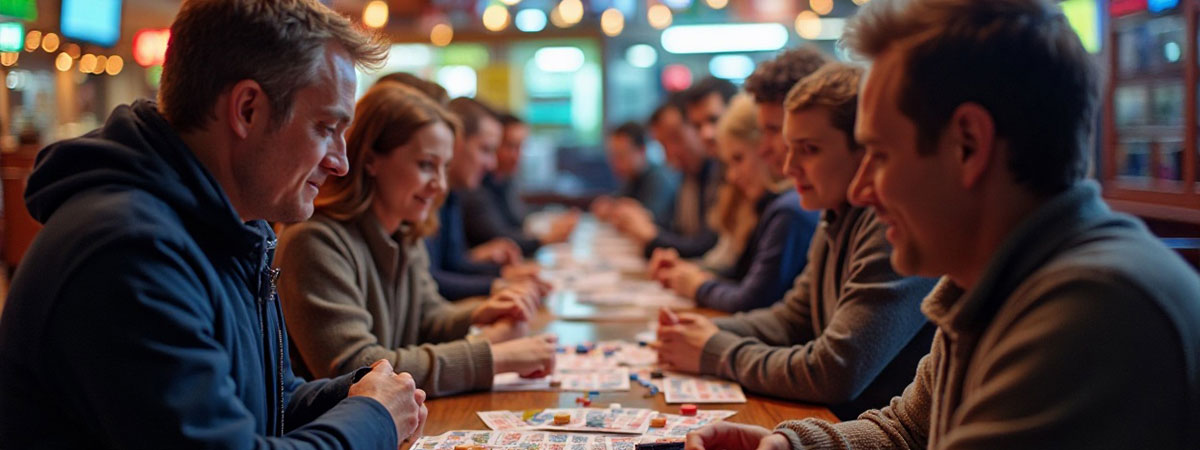
Vampire Bingo
£40 Free Bingo Bonus + 50 Free Spins
Rating 4.5


£40 Free Bingo Bonus + 50 Free Spins
Rating 4.5
Superstitions are a fun and quirky part of the game for many players. Referred to as bingo superstitions, this type of unusual belief really does make bingo more interesting and personal—it’s like there is an entire ritual involved.
From sitting in a “lucky” seat to carrying a precious trinket to using a certain style of dabber, superstitions are an entertaining part of bingo culture and help offer players confidence, comfort and, for some, even a winning streak.
While there’s no scientific basis behind them, they often help players feel more confident or connected to the game.
Many gamers carry a physical object that they believe brings them good luck. These can be something as personal as totems, or symbols of luck that are more universally recognized:
Some of the popular good luck charms are: four leaf clovers, rabbit’s feet, horseshoes, good luck trolls, religious items (like rosaries or crosses), crystals, or even little stuffed animals. Some players accumulate charms as they go, one for each victory.
The pattern of the charms is also thought to be significant. Players will often lay them in a certain order or pattern, which they won’t have to remember each game. Charms are more than just superstition — they can provide a sense of comfort and emotional grounding, especially for regular players.
Many bingo players believe that their dauber (the ink thingy used to stamp called numbers) is a good luck charm. Because one dauber can be luckier than another, they’re more likely to get an odds gain.
Some swear by a particular color (red for passion, green for money, blue for serenity, concentration, etc.). Some people will never change out their daubers, even if they’re all but out of ink.
Personalized or novelty daubers (e.g. animal shape, glow-in-the-dark) are also common and are popular as gifts and for souvenirs. There is a belief that borrowing someone else’s dauber or allowing someone else to borrow yours can “transfer” the luck away.
Bingo players can be fiercely territorial about where they sit — and it’s not just a matter of comfort. A “lucky seat” more often leads to a win. It is common for there to be an early line just for your favorite seat.
Some would shy away from seats yielding a losing streak, calling them “jinxed.” And there can even be vexing issues like a won seat in a hopping bingo hall, where the regulars really don’t like to be displaced.
Some even think that they can increase their chances by being near the front or close to the caller — despite the game being completely random.
As in sports or lotteries, some calm is to be found in numbers, some symbolic tension displaced. Many players have lucky numbers of their own, like birth dates, anniversaries or numbers dreamed up in the night.
Common lucky numbers — some might say “the” lucky numbers — include 7, 11, 21 and 3 (whenever combined with 7 and 11). Some players steer clear of “unlucky” numbers, like 13, or of anything that has brought them bad luck in the past.
There’s a superstition that if the player sees his favorite number frequently on other people’s cards the day’s luck won’t be in his favor. Some more advanced players will look for ghost numbers and track which numbers have not “hit” on the bingo sheet or card (a form of cold number tracking — although bingo is a game of chance, you can play the odds).
Ritual, they say, can be followed with what almost seems like religious intensity, and its complexities can be striking:
Types of players will do just such a thing: some will get dressed up in the same clothes for every session they win. Some have rituals — they knock on wood, cross themselves, say a mantra or prayer — before the first number is called.
Some players follow strange eating or drinking habits (such as always drinking coffee before a game, or never eating.). Some people rustle the cards or dar the cards for good luck or tap the card three times before you start the game.
These rituals provide a sense of continuity and minimize anxiety, thereby resulting in something that feels less chaotic.
This is a gamblers’ superstition prank that has spread to other games of chance:
It’s bad form and superstition to talk about feeling like you’ll win. Players have learned that speaking about winning before it actually happens will “scare it off.”
Some see an early congratulations as an automatic loser. And in some halls, players will even jokingly shush those who speak of winning out loud before a game is over.
Loyalty to a certain bingo card is rampant – especially for regulars:
That some players “have winning cards” which they won with once, and now won’t switch from. Cards that have “hit” before are said to be “hot” or lucky.
Due to the shifting parameters, if someone inadvertently picks another player’s favorite card, it really brings the heat. Others will switch around to a narrow subset of cards he trusts because they believe in some kind of sequence or cycle.
Even some digital players will re-use the same numbers or layout if allowed to do so.
Bingo is a social game, and the vibe at your table can factor in — at least in your own mind:
Players will sit with (or avoid) players who have a reputation for moaning, who are often unlucky or who have “bad energy” in an unconscious effort to transfer positive luck to their own play. Some players even go as far as changing tables if they suspect someone around them is a “jinx.”
This superstition is often a singularity that matches social dynamics and players will form similar small cliques and shun non-constant players or people they think will cause a disruption in the game. There’s also the belief that good energy and laughter are harbingers of good fortune, which is why you’ll discover groups that believe they must be cheerful and upbeat to win.
Bingo superstitions aid in the construction of routine in a strictly luck based game as well as comfort. Here’s why they’re meaningful:
Control Amid Chaos: Bingo is based on chance, and rituals or superstitions make players feel more in control. Booster Confidence: People are more focused and alert when they feel they luck on their side.
Community & Tradition: Superstitions are integrated into group culture and help to unify the team. Fun Factor: Come on, charms and routines and funny little habits make the game more interesting.